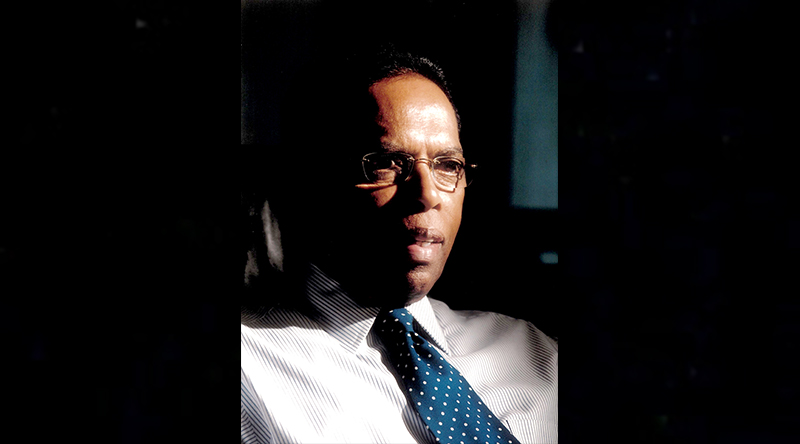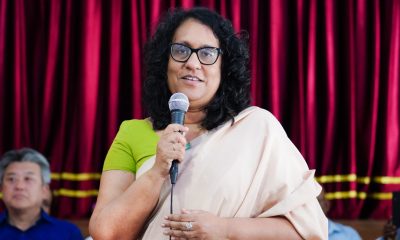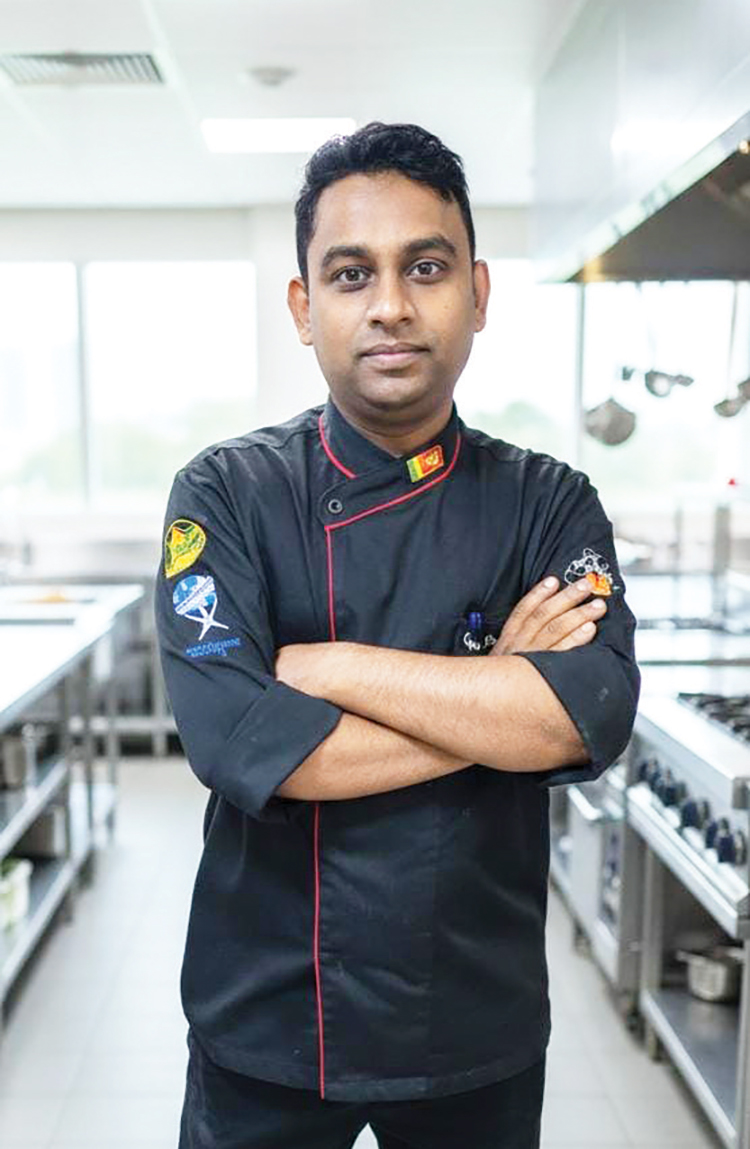Business
UNESCO-Huawei Open School Initiative set to transform education in Egypt, Brazil and Thailand

Huawei announced the implementation stage of the Technology-enabled Open Schools for All Phase II project in Brazil, Egypt, and Thailand at Digital Learning Week, UNESCO’s flagship event on digital learning and the transformation of education.
Running from 2024 to 2027, Phase II of the UNESCO-Huawei initiative will support the digital transformation of education in each of the three nations through digital open school models. These models combine technology innovations and human capabilities to create flexible, resilient, inclusive, and quality learning environments that blend offline and online learning.
The implementation stage of the project’s Phase II follows the design stage, which was launched in April 2024, to establish the specific needs and priorities of the three nations.
The announcement was made at the Technology-enabled Open Schools for All Forum hosted by UNESCO and Huawei during Digital Learning Week. The Forum focused on lessons learned and achievements of Phase I, which ran in Egypt, Ethiopia, and Ghana between 2020 and 2024, and provided valuable insights for the implementation of Phase II.
Distinguished guests included Mohamed Abdel Latif, Minister of Education and Technical Education for Egypt; Dr. Yaw Osei Adutwum, Minister of Education for Ghana; delegates from the ministries of education from Ethiopia, Brazil, and Thailand; and representatives from UNESCO and Huawei.
“In Egypt, we have embarked on a transformative journey in education rooted in the belief that technology is not just a tool but a catalyst for unlocking potential, nurturing creativity, and expanding opportunities for both educators and learners. The success of the first phase of this project is a testament to the dedication of our educators and partners,” said Mohamed Abdel-Latif, Minister of Education and Technical Education of the Arab Republic of Egypt.
Aligned with Huawei’s TECH4ALL digital inclusion program, the technology aspect of the Open School initiative centers on connecting schools, providing training for educators in ICT skills, and the development of digital education resources.
“The Open School approach aims to drive the human-centered digital transformation of the education sector through connectivity, competence, and content,” said Joyce Liu, Director of the TECH4ALL Program Office at Huawei. “Through a partnership approach that leverages technology tailored to specific national priorities, we believe that we can realize equitable and inclusive access to lifelong learning opportunities for all.”
The Brazil Open School project centers on advancing inclusion and green-oriented learning. Aligned with the nation’s Connected Schools Strategy, the project will build five smart schools, while two digital training centers will provide training for teachers in ICT skills, and digital courses will enable online learning.
Thailand’s Open School project aims to foster well-being in the education domain. Aligned with its 2018-2037 national strategy, the project will build ten smart schools and expand the use of smart classrooms, with competence developed for teachers through training in ICT skills and learning resources provided on digital platforms.
The Open School projects in Brazil and Thailand will serve as benchmarks for the Latin America and ASEAN regions, respectively.
Phase II project in Egypt will focus on expanding teacher training in ICT skills, continuing the momentum from Phase I where a New Center for Distance Learning was established, benefiting 950,000 educators.
The Phase I Open School projects in Ethiopia and Ghana also delivered significant progress in advancing educational technology and empowering educators:
Ethiopia equipped and trained 12,000 students and 250 educators across 24 pilot secondary schools, and developed its first EdTech training manual to support its new Digital Education Strategy (2023-2028).
Ghana improved its national educational platforms, developed an ICT Competency Framework for Teachers, and provided ten schools with ICT equipment, benefiting 1,000 teachers and 3,000 students.
Business
HNB Assurance delivers industry leading 42% revenue (GWP) growth and 28% rise in profits (PAT)

HNB Assurance PLC reported an outstanding financial performance for the year ended 31st December 2025, delivering a 42% year-on-year growth in Life Insurance Gross Written Premium (GWP), this along with the growth rate in Renewals are the highest in the industry.
Life GWP reached Rs. 19.49 Bn compared to Rs. 13.71 Bn in 2024, reflecting strong New Business generation and Renewal Collection. Net Written Premium grew even faster at 43% to Rs. 18.44 Bn, highlighting the quality and sustainability of the Company’s topline expansion.
Commenting on the results, Chairman Stuart Chapman stated, “The year under review was marked by gradual macroeconomic stabilisation, improved investor sentiment and a more predictable policy environment. Although the economy continues to recover from prior volatility, we are beginning to see renewed financial confidence among individuals and businesses. Against this backdrop, HNB Assurance has delivered strong growth in both revenue and profits, while maintaining robust capital adequacy and prudent risk management. Our improvement in top line, profitability and balance sheet strength demonstrates the resilience of our business model and our ability to navigate changing economic conditions which are reflected in an ROE which increased to 18.5% from 16.9% a year earlier.”
Profit Before Tax increased by 28% to Rs. 3.03 Bn from Rs. 2.36 Bn in the previous year, while Profit After Tax (including Life Surplus Transfer) rose by 28% to Rs. 2.12 Bn compared to Rs. 1.66 Bn in 2024. Earnings Per Share improved by 28% to Rs. 14.15 from Rs. 11.04, reinforcing the Company’s ability to consistently translate business growth into enhanced shareholder value. In line with this strong performance, the Board of Directors has proposed a first and final dividend of Rs. 5.00 per share for 2025, representing a 28% increase over the Rs. 3.90 per share declared in the previous year.
Executive Director and Chief Executive Officer Lasitha Wimalaratne highlighted the consistency of the Company’s upward trajectory. “Our 2025 performance reflects a sustained pattern of high growth and disciplined execution over the past four years. During this period, we have consistently strengthened our distribution reach, enhanced advisor productivity, invested in digital enablement and sharpened our customer centric value proposition. Each year we have built on the previous year’s gains, and the 42% growth in Life GWP in 2025 is the strongest affirmation yet of that strategy. Importantly, we have achieved this while maintaining underwriting discipline, expanding our Life Fund and delivering a 28% increase in PAT.”
The strength of the Company’s balance sheet continued to improve during the year. Total Assets grew by 28% to Rs. 68.44 Bn from Rs. 53.40 Bn, while financial investments increased by 29% to Rs. 62.49 Bn from Rs. 48.49 Bn in 2024, reflecting disciplined asset accumulation and prudent investment management. Total Equity rose to Rs. 12.19 Bn from Rs. 10.81 Bn, supported by Retained Earnings which grew by 18% to Rs. 10.23 Bn.
The Life Insurance Fund recorded a significant expansion of 27%, increasing to Rs. 48.87 Bn from Rs. 38.34 Bn in the previous year. During the year, the Company paid Rs. 4.40 Bn in Net Insurance Benefits and Claims, honouring its commitments to policyholders and their families while further strengthening long term reserves. Investment Income remained a key contributor to performance, with interest and dividend income rising by 10% to Rs. 7.49 Bn.
The Market Capitalisation as at the end of the year stood at Rs. 17.21 Bn up 43% from a year ago when it was Rs. 12.02 Bn, while trading for year ended at Rs. 114.75 per share increasing by 43% from Rs. 81.10 a year ago.
Business
Phoenix Ogilvy Dominates Sri Lanka’s Creative Rankings

Standout year with international award show wins at LIA, One Asia, Clio, AdFest, Spikes Asia & The Work
Phoenix Ogilvy has been named 2025 Sri Lanka Agency of the Year after topping The Campaign Brief Asia’s Creative Rankings as the most internationally awarded agency in the country, an agency news release said..
The agency’s ranking also marks Sri Lanka’s return to the list in 2025, following the country’s absence from it the previous year.
The Campaign Brief Asia Creative Rankings annually evaluate the top 100 most awarded creative agencies in Asia, based on their achievements across leading international award shows.
The rankings are widely regarded as one of Asia’s most credible measures of creative excellence. Agencies accumulate points purely from award wins across major international creative shows, making it one of the longest-running and most respected benchmarks of creative performance in the region.
Phoenix Ogilvy secured the top spot in the national table, amassing an impressive 295 Creative Ranking points after standout wins across six major international creative award shows, including London International Awards (LIA), One Asia Awards, Clio Awards, AdFest, Spikes Asia, and Campaign Brief’s The Work.
Being ranked at the top not only signals national creative leadership for Phoenix Ogilvy but also exhibits the agency’s talent strength. In a testament to this creative calibre, the agency’s talent dominated the Campaign Brief Asia’s Individual Creative Rankings in Sri Lanka.
Leading this list is Nadeera Warawita with 250 Creative Ranking points, followed by Sakuna Ranasinghe at No. 2 with 220 points, and Samitha Kaushalya at No. 3 with 150 points. Meanwhile ranked jointly at No. 4, are Dilshi Aberaja, Dilshard Ahamed, Harsha Kumara, Kasun Wadumestri, Keshan Silva, and Suresh Kumar. At no. 10 is Dilshi Thathsarani.
Speaking on these achievements, Irvin Weerackody, Chairman of the Ogilvy Group Sri Lanka, said, “Creativity has always been our lifeblood, and it is encouraging to see that commitment recognised on the world stage. The real test of an agency is not the trophies, but the courage to create with integrity, especially today. These achievements not only reflect the capability of our talent, but importantly their discipline, their cultural instinct and their refusal to take the easy way out. I am proud of our teams, who continue to push themselves year after year to raise the bar and uphold the standards we believe in.”
For five decades, Phoenix Ogilvy has been a defining pillar of the country’s marketing landscape and an influential creative powerhouse. From its earliest days, the agency has challenged convention and advocated brave thinking, producing work that commands attention, both locally and internationally.
Renowned as a formidable training ground for Sri Lankan advertising talent, the agency has also played a pivotal role in shaping generations of trailblazing creatives, strategic thinkers, and industry leaders who continue to leave their mark across the region and beyond.
Strengthened by the global Ogilvy network, the agency enjoys a rare blend of global creative rigour and deep local intelligence. Over the years, it has diversified across multiple disciplines and today stands as a talent hub for 290 industry specialists spanning creative, strategy, digital, media, public relations and integrated communications in Sri Lanka.
At its core, the agency remains true to the principles it was built on: that great ideas come from disciplined minds, uncompromising craft, and the refusal to settle for the ordinary.
Business
Oak Ray Chef Marks a Culinary Milestone with 118 Unique Creations

In the intricate world of pastry and bakery arts, R.S. Weerakoon has emerged as a visionary creator, known for his extraordinary ability to transform any concept into a stunning cake masterpiece. Currently serving as the Head Chef (Pastry & Bakery) at the Oak Ray Group in Kandy, Weerakoon’s journey is a blend of local talent and international expertise.
An alumnus of Udispattuwa Maha Vidyalaya, Weerakoon holds an NVQ Level 04 qualification from NAITA and is a distinguished member of the Chefs’ Guild of Sri Lanka. With over 14 years of experience in the industry, including valuable tenures in Kuwait and Oman, he has successfully integrated Middle Eastern culinary trends with local flavors.
One of his most significant contributions to the industry is the introduction of 118 unique products to the Oak Ray Group. Remarkably, all these creations are made without the use of any artificial food colorings, prioritizing the health and well-being of consumers.
Speaking about this talented professional, the Chairman of the Oak Ray Group, Mr. Sujeewa Palliyaguruge, stated that his vision is to provide a creative platform for such skilled young individuals.
“Our goal is to allow talented creators like Weerakoon the freedom to innovate and bring their unique visions to life, which ultimately benefits the entire culinary industry in Sri Lanka,” he said.
Weerakoon’s dedication to natural ingredients and his mastery of cake architecture continue to set new benchmarks for the next generation of chefs in the hill capital.
- R.S. Weerakoon
By S.K. Samaranayake
Pix by Razik Jabbar
-

 Features7 days ago
Features7 days agoLOVEABLE BUT LETHAL: When four-legged stars remind us of a silent killer
-

 Business7 days ago
Business7 days agoBathiya & Santhush make a strategic bet on Colombo
-

 Business7 days ago
Business7 days agoSeeing is believing – the silent scale behind SriLankan’s ground operation
-

 Features7 days ago
Features7 days agoProtection of Occupants Bill: Good, Bad and Ugly
-

 News6 days ago
News6 days agoPrime Minister Attends the 40th Anniversary of the Sri Lanka Nippon Educational and Cultural Centre
-

 News7 days ago
News7 days agoCoal ash surge at N’cholai power plant raises fresh environmental concerns
-

 Business7 days ago
Business7 days agoHuawei unveils Top 10 Smart PV & ESS Trends for 2026
-

 Opinion3 days ago
Opinion3 days agoJamming and re-setting the world: What is the role of Donald Trump?















